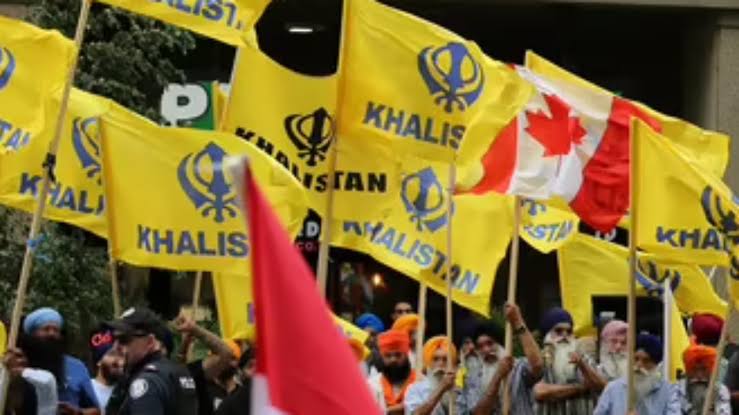Intelligence Service of Canada Confirms Khalistani Terrorism

India has been raising concerns about Khalistani terrorists operating from Canadian soil, but until now, Canada had refrained from public acknowledgment. With Trudeau’s ouster, the CSIS report now validates India’s persistent claims, confirming that Canada has become a safe haven for anti-India elements and that these activities have been ongoing for decades.
The Canadian Security Intelligence Service (CSIS), Canada’s premier intelligence agency, has officially acknowledged that Khalistani extremists are using Canadian soil as a base for promoting, fundraising, and planning acts of violence primarily targeting India.
CSIS has confirmed this in its latest annual report, which outlines key concerns and threats to Canada’s national security and marks a significant shift in Ottawa’s public stance on the issue.
The CSIS report categorically states, “Khalistani extremists continue to use Canada as a base for the promotion, fundraising or planning of violence primarily in India.” This is the first time the term “extremism” has been formally used by a Canadian government agency in relation to Khalistani activities.
The report highlights that since the mid-1980s, the threat of politically motivated violent extremism (PMVE) in Canada has primarily manifested through Canada-based Khalistani extremists (CBKEs), who seek to create an independent nation-state, Khalistan, largely within India’s Punjab region, through violent means.
The report also “ accuses “ India that “real and perceived Khalistani terrorism emerging from Canadian soil continues to drive Indian foreign interference activities in Canada,” underscoring the complex interplay between domestic extremism and foreign diplomatic tensions.
India has been reciprocating the above sentiment because of anti Indian terrorists, mostly Canadian citizens have been operating from Canadian soil with Trudeau’s approval.
This revelation comes at a sensitive time in Canada-India relations. Just a day before the report’s release, Canadian Prime Minister Mark Carney and Indian Prime Minister Narendra Modi agreed to take calibrated steps to restore stability in their bilateral relationship, including the restoration of High Commissioners to each other’s capitals.
This diplomatic move followed a period of heightened tensions, particularly after allegations by former Canadian Prime Minister Justin Trudeau regarding Indian involvement in the killing of a Khalistani Canadian terrorist Hardeep Singh Nijjar, in 2023—a claim India has strongly denied.
The CSIS report calls for sustained vigilance against both external influence campaigns and domestic extremist financing networks. It warns that these activities attempt to influence Canada’s positions on key issues, especially concerning how the Indian government perceives Canada-based supporters of the Khalistan movement.
CSIS’s official acknowledgment marks a turning point in Canada’s approach to the Khalistan issue, confirming that Khalistani terrorism have been leveraging Canada as a base for anti-India activities.
The report’s findings have reignited concerns about foreign interference, extremist activity, and the need for greater vigilance within Canada, while also validating longstanding Indian concerns and potentially shaping the future trajectory of Canada-India diplomatic and trade relations.




